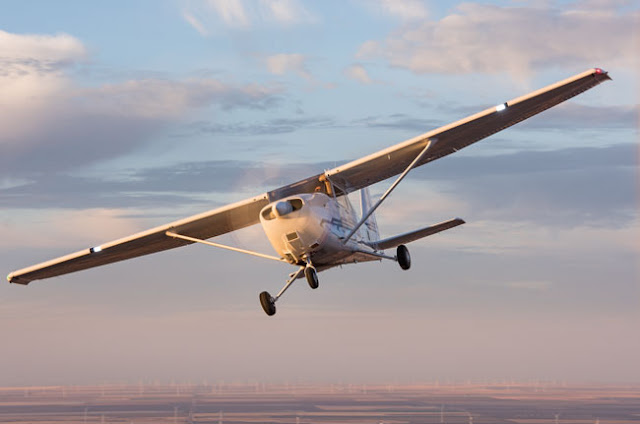How to develop your character to become a successful civil or military pilot?
How to develop your character to become a successful civil or military pilot? | |||||||||||||||||||||||||||||||||||||||||||
The journey to becoming an airline or military pilot is a pursuit of both passion and purpose, characterized by discipline, courage, and unwavering commitment. Developing the character of a young individual into a pilot involves a multifaceted approach that goes beyond technical knowledge and skills. In this essay, we will explore the holistic development required to shape a young person into an airline or military pilot, encompassing not only the educational and training aspects but also the core values and attributes that make a great aviator. | |||||||||||||||||||||||||||||||||||||||||||
 | |||||||||||||||||||||||||||||||||||||||||||
Those of you who are not able to afford commercial flight training programs due to their high cost may be able to get free flight training by going through the military route. Most military pilots end up getting free flight training, serving the minimum required term, like 8-10 years, then leaving military in pursuit of higher earning and more flexible life by transitioning into the airline flying. Either way, military or civil, requires the aspiring pilots to start developing the quintessential Aviator’s character from the young age, probably as early as 13-15. Fostering a Passion for Aviation The foundation of a pilot's character often lies in an early fascination with aviation. Encouraging young individuals to explore their passion for flight is the initial step. Visits to airshows, aviation museums, and airfields, as well as the introduction to aviation-related literature and hands-on experiences, can ignite a lifelong love for flying. Encouraging the pursuit of hobbies like model airplane building or even computer flight simulators can also help stoke this passion. Play Microsoft “Flight Simulator” Playing computer games to become an airline pilot? Yes! You would be surprised, but playing some of the most realistic flying games is actually very productive. They gaming is affordable and fun, yet it develops excellent understanding of aerodynamics, aircraft systems, instrument reading, situational awareness and, when played online with other users, better understanding of CRM and operational environment. A lot of flight students use such ultra-realistic flight games as “Microsoft Flight Simulator” to train instrument flying. In fact, the latter is so realistic that most pilots don’t even regard it as a “game”, but more as an FTP (Flight Training Devise"). Building a Strong Educational Foundation An aviator's journey begins with a solid educational background. Fostering excellence in mathematics and the sciences is crucial, as these subjects form the bedrock of aviation knowledge. Providing access to STEM (Science, Technology, Engineering, and Mathematics) programs, such as those focused on aeronautics or engineering, can help in developing the intellectual capacity required for aviation pursuits. For student in the SE Asia, this means electing the “Science Stream” curriculum in the high school instead of the artsy non-math and physics certification. Instilling Discipline and Responsibility Discipline and responsibility are non-negotiable qualities for aspiring pilots. A strict adherence to schedules, attention to detail, and accountability for one's actions are indispensable. Young individuals can develop these traits by instilling good study habits and time management skills early on. Participation in programs like the Civil Air Patrol or JROTC (Junior Reserve Officer Training Corps) can also help inculcate a sense of discipline and responsibility. If you don’t have such organizations in your country - inquire about joining a glider club. Normally, glider flying is much cheaper then powered flight, and allows teenagers from the age of 13 to learn the fundamentals of flying by learning how to fly gliders. Nurturing Courage and Resilience Aviation, whether in the military or civilian sector, often demands acts of courage and resilience. Encouraging a young character to face adversity with courage and to persevere through challenging situations is essential. Activities like sports, adventure camps, or leadership roles in school can foster these attributes. Pursuing Formal Aviation Education and Training Once the foundation is established, formal aviation education and training become critical. Enrolling in flight schools or military academies is a pivotal step for those who aspire to become pilots. For civilian pilots, obtaining a private pilot's license is typically the starting point, followed by advanced licenses such as the Airline Transport Pilot License (ATPL). In the military, aspiring pilots will undergo rigorous training programs, including flight school and specialized training for the aircraft they will operate. (Ready to start? Visit Aerocadet.com to discover our program options!) Developing Essential Soft Skills In addition to technical skills, soft skills play a vital role in a pilot's character development. Effective communication, teamwork, leadership, and adaptability are key attributes that a pilot must possess. Participation in team-based activities, volunteering, or leadership roles can help young individuals hone these skills. Becoming an airline or military pilot is not just a career choice but a way of life. The character development of a young individual aiming for the skies is a holistic process that involves fostering passion, education, discipline, courage, resilience, and soft skills. This journey is marked by dedication, sacrifice, and an unwavering commitment to safety and excellence. With the right guidance and an unyielding spirit, a young character can transform into a skilled and responsible aviator, ready to soar the skies, whether in the civilian or military aviation sector. Visit Aerocadet.com for more information about your flight training and internship options. Questions? Comments? Want to discuss your US training, internship and employment options with us? We would be happy to talk to you! Schedule an appointment now via our online scheduling software >>> | |||||||||||||||||||||||||||||||||||||||||||
| |||||||||||||||||||||||||||||||||||||||||||
 | |||||||||||||||||||||||||||||||||||||||||||
| |||||||||||||||||||||||||||||||||||||||||||


Comments
Post a Comment